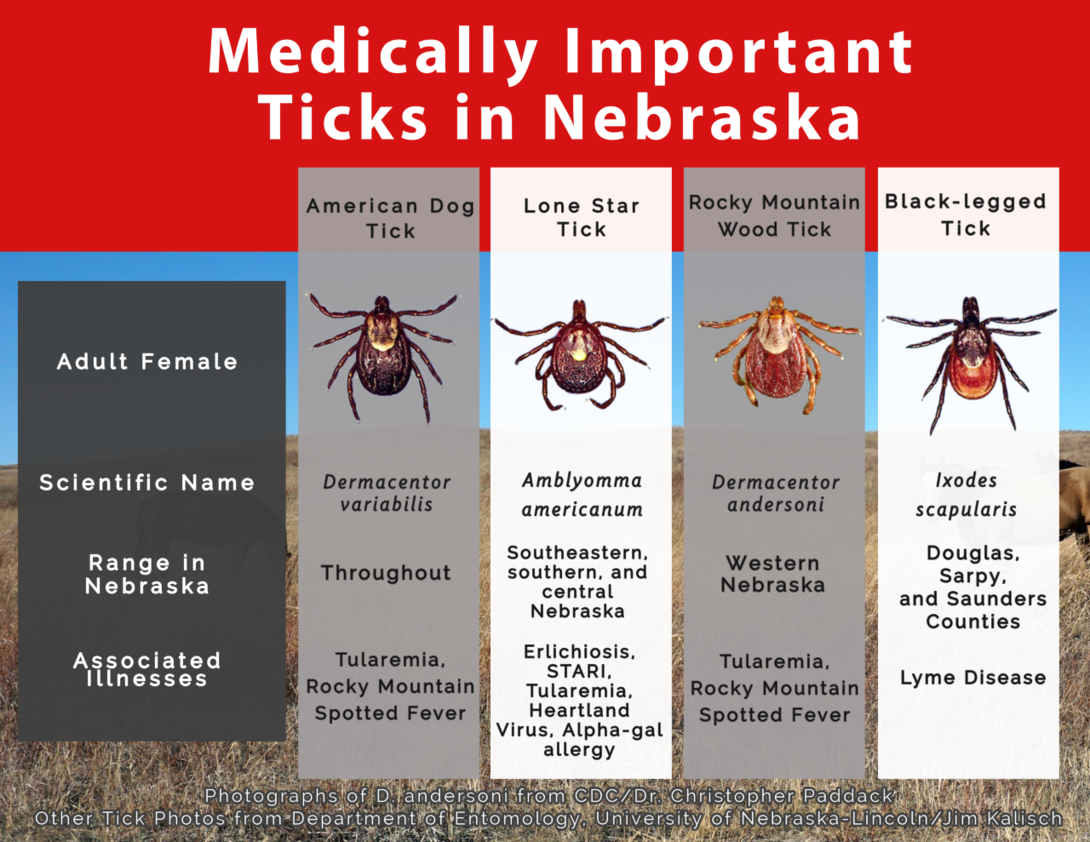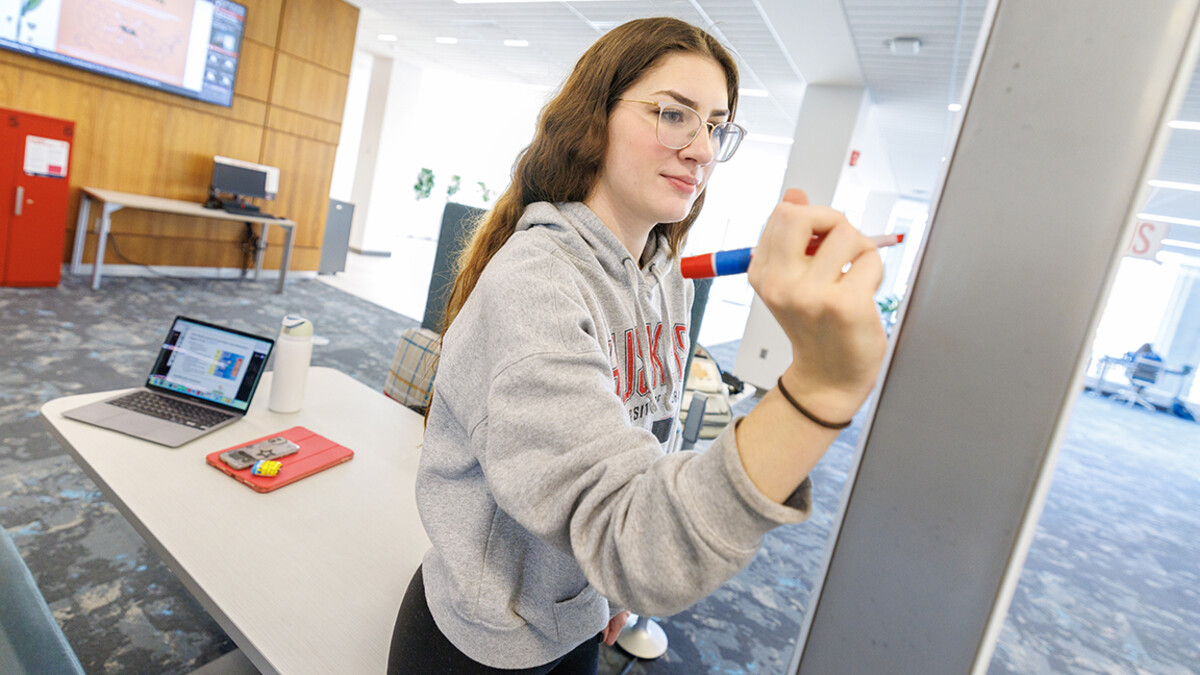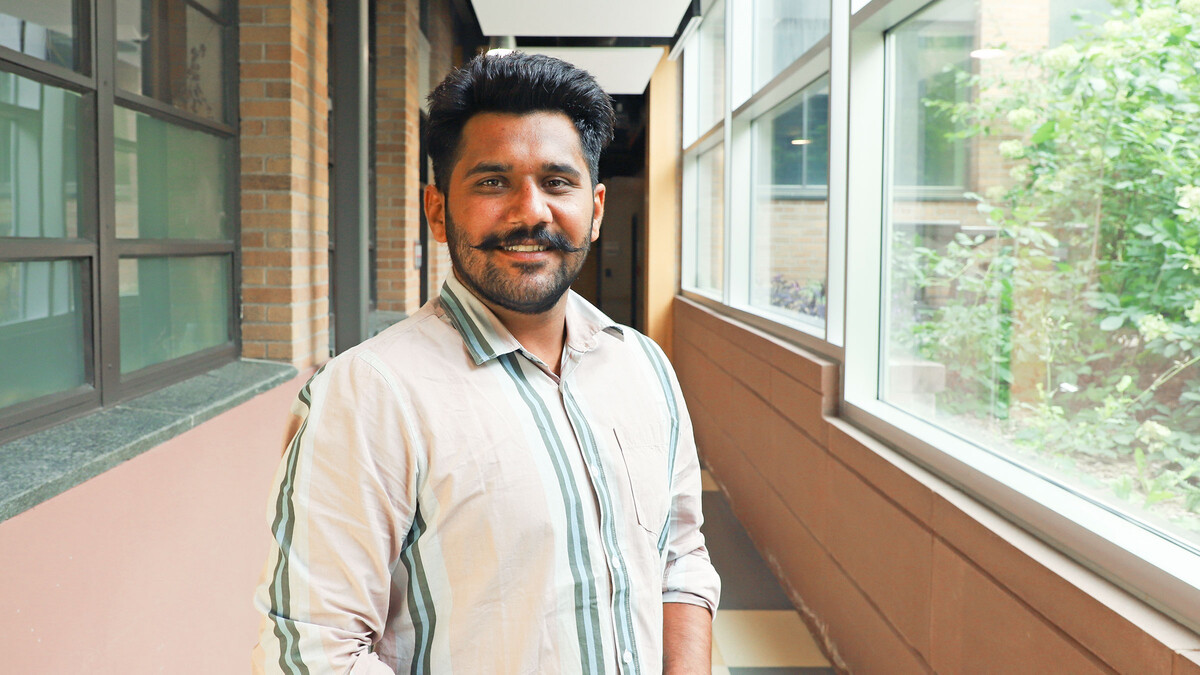
Dominic Cristiano is directing his research to better inform the public about potential risks of tick-borne diseases across the Cornhusker State.
A graduate student in applied ecology at the University of Nebraska–Lincoln, Cristiano is using data from a larger Tick Tag Go project to map tick locations statewide. Ultimately, he plans to use the data to compare Nebraskans’ perceptions of tick risks to the actual threat the blood-sucking arachnids pose.
The study aligns with the Institute of Agriculture and Natural Resources’ One Health program — which brings multiple disciplines together to study the links between humans, animals, plants and ecosystem health. Those links in Cristiano’s study include ticks interacting and transmitting diseases to animals and humans; the way humans connect to the environment; and the way animals impact the way tick-borne diseases are expressed.
“With connections between human, animal and environmental health, these tick-borne diseases definitely fall under this umbrella of the field of One Health,” Cristiano said.
Uptick in tick-borne diseases
In the past 20 years, the United States has tracked a two and a half times increase in tick-borne diseases. This includes an especially large increase in Lyme disease in the northeast and Midwest.
Due to compounding environmental factors, Cristiano said, the uptick is a growing topic of concern.
“With issues like climate change on the rise, as well as invasive species and woody plant encroachment, we might see further increases of ticks, expanding the chances of a further increase in case transmission,” he said.

Through his study, Cristiano hopes to use data to combat these disease and better inform the public about risks.
“It’s kind of on the preventative edge, I think, of trying to prevent future cases of tick-borne diseases,” he said. “Also, getting the public to be a little bit more vigilant when they are interacting with natural areas to be able to know that they could be at risk for seeing ticks on themselves and getting these diseases.”
Cristiano’s research is part of a larger effort to study ticks in Nebraska. State agency members and Husker faculty have conducted surveillance efforts for years to further understand the role of ticks in the state.
As part of the larger effort, Louise Lynch-O’Brien, assistant professor of insect biology, and Jody Green, extension entomologist, started Tick Tag Go, an online platform for citizens to upload photos of ticks. When a Nebraskan finds a tick, they simply take a photo of it and upload it to this website along with other data, such as location. Researchers then use the details to supplement their research.
Cristiano is using the data from Tick Tag Go and other surveillance efforts to map out tick locations across the Cornhusker State. When complete, he’ll survey Nebraskans to gauge perceptions of risk in regard to ticks, as well as their ability to mitigate any perceived threat.
Cristiano will then compare individual Nebraskans’ perceived threat to the actual threat in areas of the state. That data could then be used to issue guidance specific to individual communities or regions.
“The primary goal of this research is just to get a better sense of where ticks are now that’s different than the past so we can identify the different areas of the state where they’re expanding, and then we can get a better idea of where we need to be prepared to get ready for these invasions in the future,” he said.
Cristiano earned his bachelor’s degree in environmental conservation biology at Kent State University, with a minor in public health. During that time, he started to become interested in human health and the ways that the environment impacts human health.
To continue working with both public health and ecology, Cristiano applied to the National Science Foundation Research Traineeship Program at Nebraska. Cristiano joined the program in 2019 and hopes to complete his tick research by December 2021.
Nebraskans interested in assisting with the study can upload tick finds to Tick Tag Go. By uploading the information, a record of the tick interaction will be available for future reference.
Undergraduate students interested in helping with Tick Tag Go and tick research can contact Lynch-O’Brien at llynchobrien@unl.edu.








